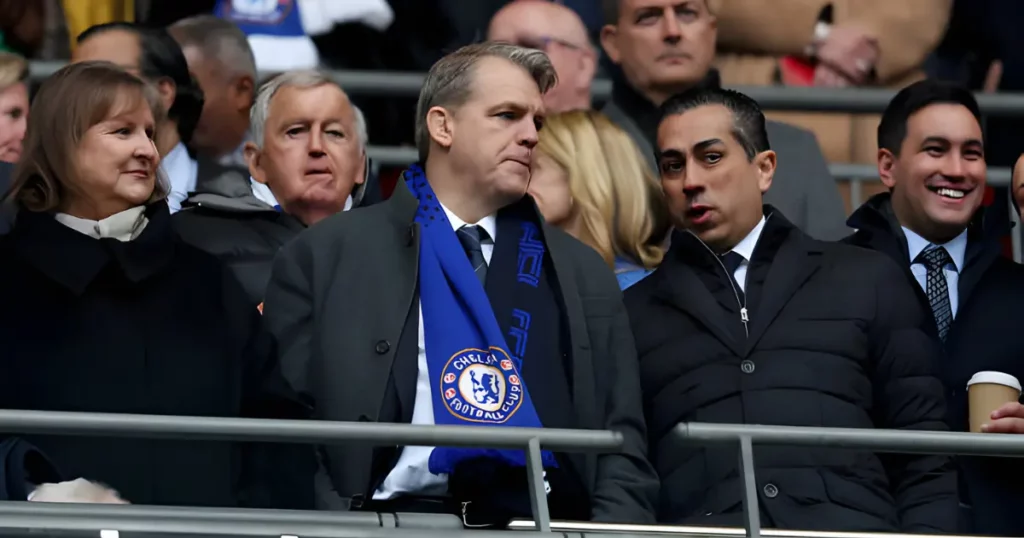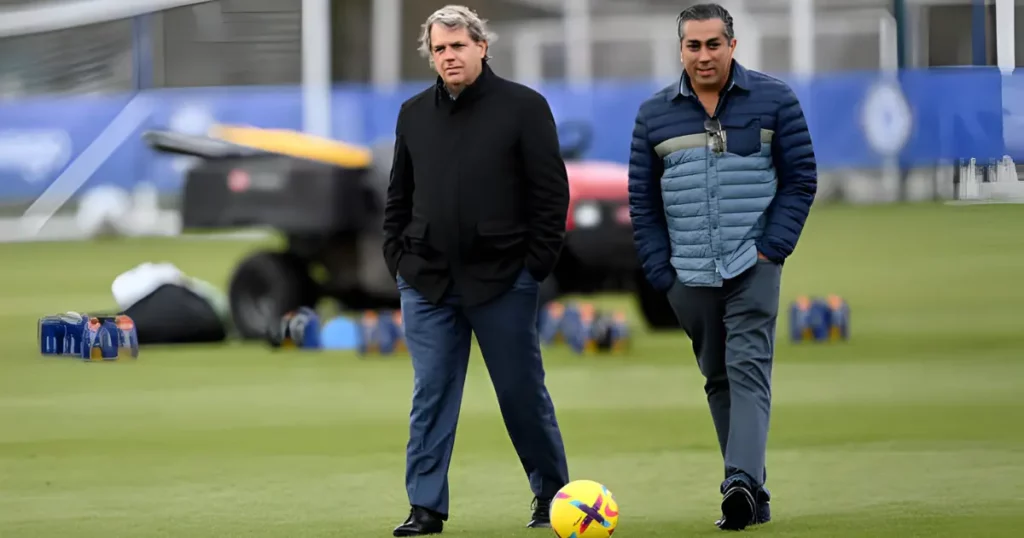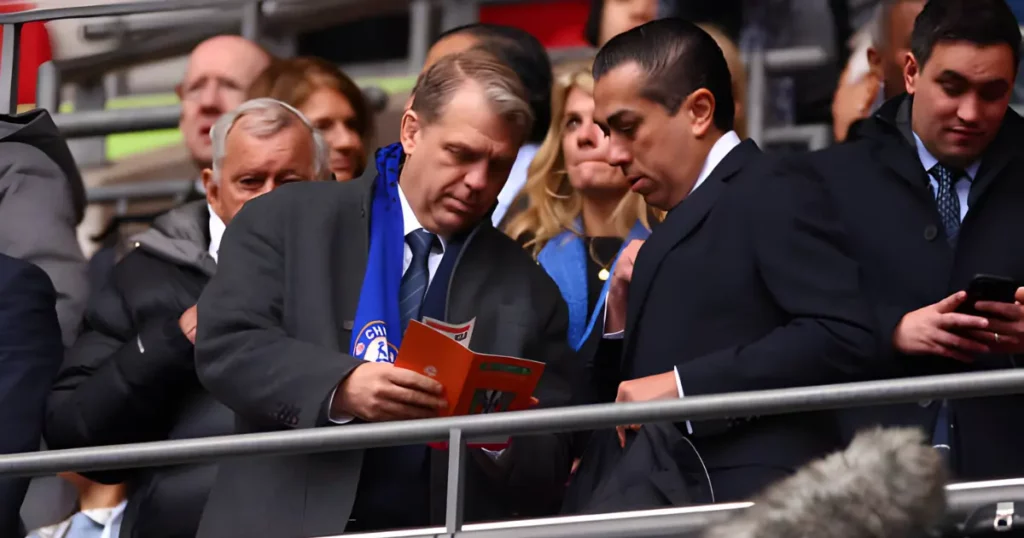Since the arrival of the Todd Boehly and Clearlake American consortium as owners of Chelsea following the £2.3 billion takeover in May 2022. The Blues have spent over £1 billion in the transfer market in the acquisition of 36 permanent players to date.
According to Opta, Chelsea have accounted for the highest net spend than any other Premier League club in the past two years which is £670 million. It speaks volumes of the financial capability of their new owners, along with staggering expenditures
League’s financial fair play rules also caused significant trouble for Todd Boehly and co-owners. On the other hand, despite cashing substantial amounts of money on transfers. Yet, they have failed to deliver the desired results on the field and have gone through several managerial changes, none of them has managed to work out for the Blues.
The Blues have failed to secure the UEFA Champions League qualification since lifting the trophy in 2020-21 under Thomas Tuchel’s management and Abramovich’s regime. In the previous two campaigns, Chelsea finished 12th and 6th position respectively, the improved performance came under Mauricio Pochettinho during the final scratch of the 2023-24 season, ahead of his sacking at the end of the season.
The constant on-field failures and multi-million transfer’s inability to deliver the outcomes and the club’s entire operations have caused turbulence in the Chelsea top brass, fueling conflict among the owners upon several disagreements regarding the operational and recruitment policies of the club tainted their relationship as Co-owners.
What is the reason that led Chelsea to ownership change in 2022?

In May 2022, Premier League club Chelsea underwent an unessential ownership change following the sanctions imposed by the United Kingdom government sanctions on the Russian business oligarch Roman Abramovich then Chelsea owner, due to the growing political and financial pressure caused by Russia’s invasion of Ukraine that led to war between these two European nations.
Consequently, the after-effects of sanctions forced Abramovich to sell the club immediately, as his billion dollars of assets were seized by the UK government including Chelsea’s ownership share.
Finally, Abramovich’s successful era at Stamford Bridge concluded, when American businessman Todd Boehly and Clearlake Capital – an American equity firm joined hands along with Mark Walter and Hansjord Wyss and bought Chelsea Football Club for £2.3 billion price. This ownership change marked the end of the club’s glorious spell under the Russian owner.
Also Read: Chelsea gets a positive update on Cole Palmer’s injury
What led to the tensions between Todd Boehly and Clearlake Capital?
Todd Bohely and Clearlake’s capital relationships have reached another low with speculation now being confirmed with the matter having emerged publicly. The dispute occurred due to their differences in the management plans and non-alignment of the club’s sporting operations.
Moreover, the recent sacking of Mauricio Pochettinho has further added fuel to the ongoing rift between the two American co-owners. Behdad Eghbali who has the majority of the share 61% wants to oversee the recruitment strategy.
How does the Chelsea club ownership agreement affect Boehly’s ability to sell his shares?
Reportedly, the two business partners are now planning to launch their own bid to buy out each other’s share to major sole control of the Chelsea football club amid the ongoing conflict at Stamford Bridge. Besides, the possibility of Todd buying the entire shares of the team to gain greater control over. Hence, there’s a chance that he could obliged to sell his shares.
Todd Bohely, Mark Walter, and Hansjord Wyss all three own the rest of the shares 39% of the club as minority owners with 13% divided equally into three. However, Boehlys’s involvement was greater than his shares, serving as the Chairman. He has been actively working alongside Eghbali over the years.
What are the stakes for Todd Boehly in the Chelsea club ownership conflict?

The owner of Eldridge Industries, Todd Boehly emerged as a prominent name in 2022 when Chelsea was up for sale after Roman Abramovich was constrained to leave the club’s ownership after serving the club from 2003 evolving the West London club into one of the best teams in the world.
Bohely also owns the LA Dodgers — a Major League Baseball team based in Los Angeles. He owns the minority of 39% shares of the club, with his individual share being just 13% yet he has been widely recognized as the Chelsea owner.
The 50-year-old frequently attends the Blues matches at Stamford Bridge and is regularly in public appearances and media representing the club’s ownership. Despite being a minority shareholder Bohely’s led group have vetoed an agreement to have control over the crucial decisions.
What are Clearlake Capital’s intentions regarding Boehly’s stake?
Alongside Todd, Clearlake Captial founder Behdad Eghbali was also involved significantly in the new ownership. Recently, Eghbali’s increasing involvement in the sporting operations and day-to-day working of the club, and non-alignment over future plans which include Stamford Bridge stadium renovations, the decision to relieve Mauricio Pochtenhio from his role led to the conflict of interest.
Behdad Eghbali have greater power among the other Co-owners, courtesy of the 61% stakes in the Chelsea club ownership. Due to agreement terms, any major decisions should be approved by Boehly, Eghbali and fellow Clearlake co-founder Jose E. Feliciano.
As per various reports, Clearlake Capital wants to acquire more control over the club and are keen to take over the remaining shares from fellow minority investors. The upcoming months will be crucial for deciding the fate of Chelsea investors board.
Also Read: Mint war at Stamford Bridge as Chelsea’s executives fight over majority ownership
How might this conflict influence Chelsea’s transfer market strategy?
The ongoing rift between two prominent Co-owners of the Premier League club — Todd Boehly and Behdad Eghbali will lead to major consequences on the club’s overall functioning, be it transfer, recruitment strategy, or the appointment of backroom staff.

With growing opinion against Todd Boehly in the top management, it can be expected that he would leave his position as the Chairman of the club, in case the Clearlake capital successfully manages to force him out.
Since neither Bohely nor Eghbali are in favour of giving away their shares and want to outclass each other in a bidding war to acquire each other’s share. The consortium with greater stakes in the ownership would have more influence on transfers and sporting operations, it will be interesting to see who’ll emerge as the winner in the battle of ownership.
